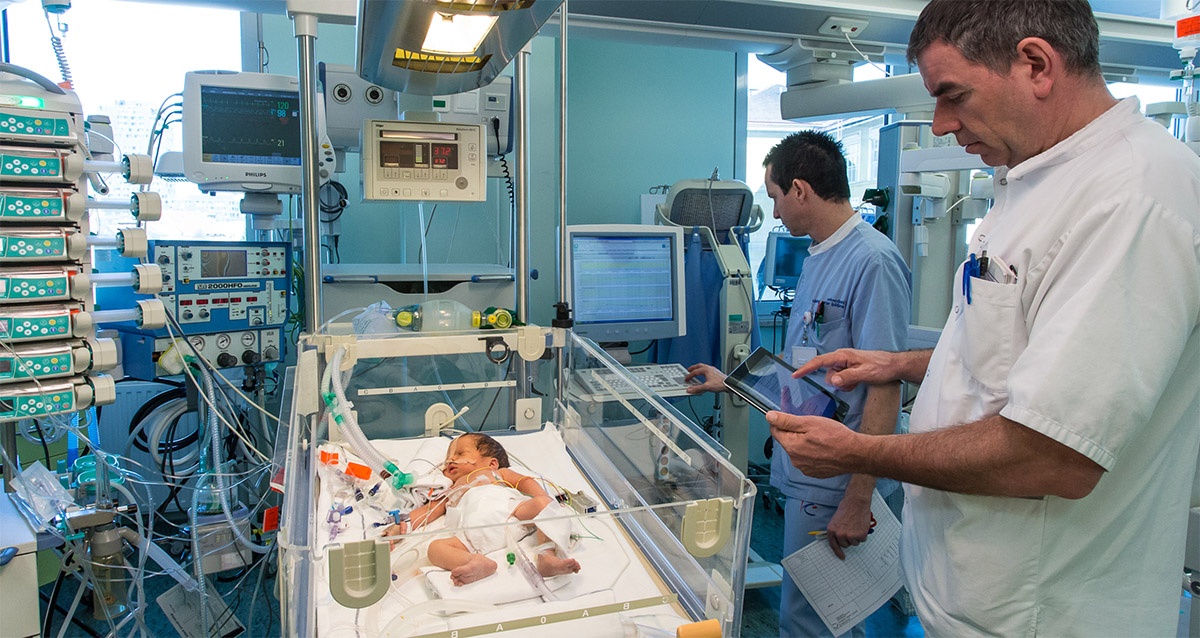healthcare
Paperless hospital: giving medical teams more time with patients
Each hospital is different. Surrounded by bustling nurses, pharmacists and doctors, beeping medical devices and all sorts of emergencies, patients can often feel like nobody gives them any real attention. Healthcare technology, despite all its benefits, complicates things even further and often makes medical teams act like clerks. Computers or tablets become yet another distraction, another barrier between the doctor and the patient.
Today the advancements in technology give us the opportunity as well as the responsibility to develop intuitive and easy to use healthcare IT solutions.
“Modern healthcare applications need to focus on data visualisation and representation in a way that will reduce the cognitive load of medical teams and thus help them make more informed decisions and improve patient care.“
Furthermore, any process optimisation within a hospital needs to be done with the main focus around the patient. If you can direct your focus on improving patient outcomes, shortening patient stay and making sure that the patient is not readmitted, you will in turn also optimise all the processes of medical teams and make better decisions on what tools, apps and solutions you need to achieve that. At the end of the day it all comes down to removing all the “waste” (the unnecessary steps of existing processes) and finding the actual jobs to be done.
For a successful digital transformation start with one area and build upon it
Selecting the right product and having the crucial information readily available is just a small piece in the overall digital transformation journey. In order to take full advantage of becoming paperless it is crucial that you take enough time and the right approach to the digital transformation. Every change is difficult. To get the buy in from everyone involved you first need to properly communicate the reason for the change and then gradually start transforming your processes.

A vendor-neutral clinical data repository is crucial for the long-term evolution and sustainability of your digital transformation journey
Data is becoming the key resource; for informed decision making (based on a patient’s complete medical history), as well as for more advanced scenarios (wide-scale research projects, pattern recognition, machine learning, AI, etc.) that benefit the entire population.
Andy Blofield, CIO of University Hospitals Plymouth NHS Trust, understands that very well. That is why he and his team decided to base their trust-wide IDCR (Integrated Digital Care Record) on a structured vendor-neutral clinical data repository.
The challenge when it comes to clinical data is the fact that there is more and more of it and that the population is getting older and older, and the data should not be lost. In order to best manage the healthcare of both the population and individual patients, care providers need comprehensive EHR records – ideally with detailed data from the moment we are born.
On the other hand, with the ever-faster pace of technology advancement care providers need the ability to evolve their healthcare solutions without the need for constant data migration or the risk of losing the clinical data. Therefore, it is essential that all clinical data is stored in a vendor-neutral format and independently of the applications. Only this approach will guarantee that no matter what kind of solutions or opportunities the future holds, the care providers will be able to roll them out quickly without losing any of the data.
And what is probably even more important is the fact that innovation in this way will happen around the rich and detailed clinical data repository, constantly expanding the knowledge and approaches that will help with improving patient outcomes.
|
Learn more about Plymouth Hospitals journey towards becoming a paperless hospital by registering for a recording of our webinar ‘Plymouth's Integrated digital care record (IDCR): a foundation for an open platform architecture’ with Andy Blofield. |

